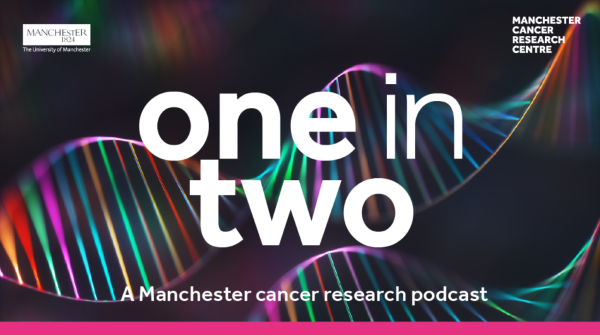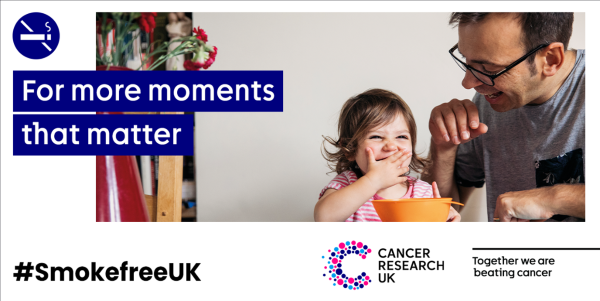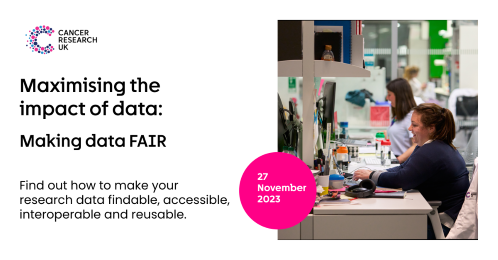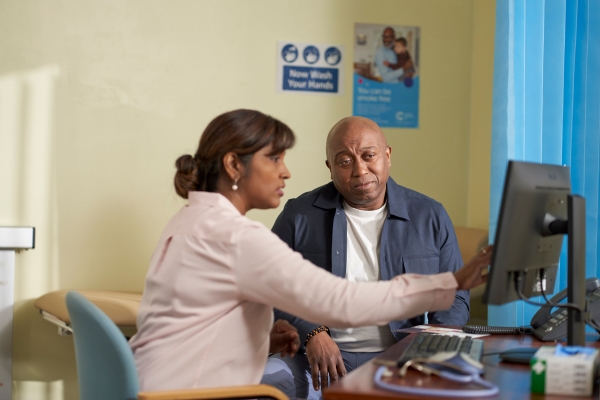| Dear Voornaam,
Congratulations to Louis Chesler, Darren Hargrave and Isidro Corts-Ciriano, who will be leading the Stratified Medicine Paediatrics 2 (SMPaeds2) programme. This programme will advance precision medicine for children and young people whose cancer has returned.
SMPaeds2 builds on the success of the first programme, which established the UKs first national platform to genetically profile relapsed childhood cancers and match them to trials.
Chesler and colleagues now aim to develop better, quicker, more molecularly detailed and less invasive tests and techniques to diagnose and monitor young patients relapsed cancers.
They will use their established tissue-referral, analysis and reporting pathways to advance current capabilities, highlighting patterns of cancer relapse and mechanisms of drug resistance. This will open the door for faster diagnosis and support the development of next-generation, rapidly adaptive, molecularly monitored capabilities for children and young people with cancer.
The advanced genetic tests and analyses that SMPaeds2 will develop will also provide scientists with unprecedented insights into the biology of relapsed childhood cancers, unlocking the potential to develop new and better precision therapies in the future.
Weve co-funded SMPaeds2 with Children with Cancer UK. Read more about the study. |
|
|---|
|
|---|
|
|
Funding & Research Opportunities |
|
|---|
|
|---|
| | | Applications accepted all-year round |
|
|---|
|
|---|
| | | Applications accepted all-year round |
|
|---|
|
|---|
| | | Applications accepted all-year round |
|
|---|
|
|---|
|
|
NEW OPPORTUNITIES TO OBSERVE FUNDING PANELS AND COMMITTEES Were offering early-to mid-career researchers the opportunity to observe funding panel and committee meetings across our entire funding remit. Youll have the chance to see how grant funding decisions are made, learn how to draft successful research proposals in the future and develop your peer reviewer skills.
This scheme has been incredibly popular in previous years, with 270 expressions of interest received since it launched in April 2022.
To help improve equality, diversity and inclusion across our research community, we are offering priority placements to researchers who are neurodivergent, identify as disabled or have a long-term physical or mental health condition, as well as women and non-binary applicants and researchers from ethnic minority groups.
|
|
|---|
|
|---|
|
|
 WHAT THE AUTUMN STATEMENT MEANS FOR CANCER RESEARCH It was positive to see such a significant focus on science and research in yesterdays autumn statement, with a raft of announcements to support research and innovation from discovery through to translation.
In his headline science announcement, the Chancellor promised 750m in extra funding for UK research and development this financial year including 250 million for long-term world-class Discovery Fellowships.
The Government also responded the Sir Paul Nurse review of the research landscape, which laid out a roadmap to achieve a more sustainable research ecosystem, and to the Lord OShaughnessy review of industry clinical trials. Our recent engagement with clinical research staff has reaffirmed just how difficult its been to deliver studies in the past 18 months and just how important it is to make a change.
Well continue to study these announcements in detail and assess what they mean for cancer research, but its clear that they wont shift the dial if they arent properly implemented. |
|
|---|
|  PRIDE IN STEM: MANCHESTER PODCAST DISCUSSES LGBTQIA+ CANCER CARE INEQUALITIES In the latest special episode of One in Two: A Manchester Cancer Research Podcast, Jen Davies-Oliveira from The University of Manchester and Stewart OCallaghan from Live Through This, the UKs only LGBTQIA+ cancer charity, talked about the challenges that LGBTQIA+ people face when accessing cancer care in the UK.
Hear Jen and Stewart on how to improve cancer screening uptake in the LGBTQIA+ community and other marginalised groups. |
|
|---|
|
|---|
|
|
2.5M INVESTMENT IN DATA COMMUNITY ACTIVITIES Were forming a Research Data Community Support Unit (DCSU) to shape our 2.5m investment in researcher-led data activities over the next five years.
The unit will guide how we develop services and solutions that enable research teams to take data-intensive approaches in their work. Our goal is to support a connected and collaborative data community that tackles common challenges collectively, shares best practices and drives data culture change.
If youd like to learn more about the DCSU, its activities, and how you can take an active role as Community Lead, do join us on 28 November for a brief information session. |
|
|---|
|
|---|
|
|
 IMPROVING THE UK SPINOUT LANDSCAPE The UK Government's commissioned independent review, aimed at identifying best practice for UK universities to form spinouts and license intellectual property, was published on Tuesday. Tony Hickson, Chief Business Officer of our innovation arm, Cancer Research Horizons, tells us why the Government must take notice and why it is time to put old notions of US-style equity to bed. Our universities are generally good at commercialising research, he says, and to improve it further we must move past arguments over equity. The review recommends increasing access to capital, encouraging entrepreneurship, and enabling movement between academia and industry, among others. All vital given how key university spinouts are to translating research into patient.
|
|
|---|
|  HELP CREATE A SMOKEFREE GENERATION In the Kings Speech to Parliament, the UK Government confirmed it will move forward with the Prime Ministers proposal to help create the first ever smokefree generation.
To help to make this proposal a reality, please take 10 minutes out of your day to respond to the governments consultation.
We've created a step-by-step guide with Q&A to help you. The consultation is open until 6 December.
|
|
|---|
|
|---|
|
|
 LAST CHANCE TO MAKE YOUR RESEARCH DATA FAIR Join our upcoming webinar, Making Data FAIR, on 27 November 1-2pm to find out how to ensure your data is findable, accessible, interoperable and reproducible (FAIR).
Hear from Kevin Litchfield, Joseph Day and Kasia Kamieniecka on how to make cancer research better by applying the FAIR data principles in your work. |
|
|---|
|  PATIENTS AND THE PUBLIC KEEP THE CONVERSATION GOING Where to start with patient and public involvement? How can you build trust? How do you reach people from under-served groups? And how can you involve people in proposals about basic/discovery research?
These are some of the many questions in a comprehensive Q&A created by patient representatives who ran a panel at our recent early detection of cancer conference. |
|
|---|
|
|---|
|
|
| | | London, UK 17 January 2024 |
|
|---|
|
|---|
| | | Manchester, UK 27 February 2024 |
|
|---|
|
|---|
|
|
WHAT DID YOU THINK OF THIS EMAIL? We're always looking for ways to improve. Please give us your feedback by clicking below and leaving a comment. |
|
|---|
|
|---|
|
|
| Been forwarded this email?
Subscribe to our newsletter to stay up-to-date. |
|---|
| |
|---|
|
|
|